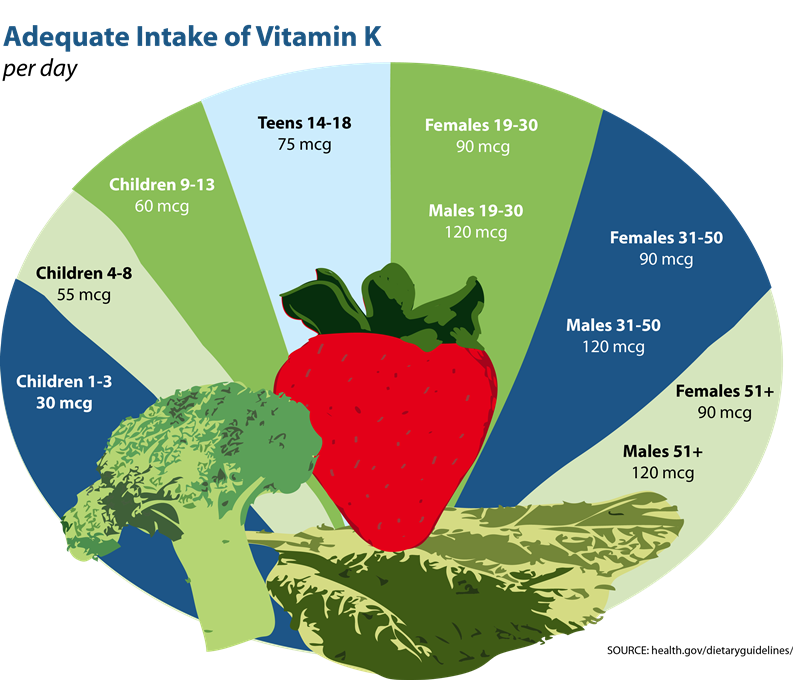Vitamin K is fat-soluble vitamin that plays an essential role in blood clotting, as well as other tasks including building strong bones and preventing heart disease. Recent evidence even shows that vitamin K is tied to vitamin D (vitamin D plays a key role in overall health) – as in if you are deficient in one, neither can work optimally, according to the National Institutes of Health.
Vitamin K is a group of compounds including:
- Vitamin K1: Obtained from leafy greens and some other vegetables
- Vitamin K2: Obtained from meats, cheeses, eggs and synthesized by bacteria
Good food sources of vitamin K include:
- Vegetables like spinach, asparagus and broccoli
- Beans and soybeans
- Eggs
- Strawberries
- Meat
What can happen if you are not getting enough vitamin K? Potential impacts could include cardiovascular disease, varicose veins, brain health problems, osteoporosis, tooth decay, prostate cancer, lung cancer, liver cancer, leukemia, infectious diseases such as pneumonia and potential other ailments.
Although vitamin K deficiencies are considered rare, there are a few factors that can result in lower levels of vitamin K including:
- Crohn’s disease, which affects absorption in the digestive tract
- Certain medication interactions
- Heavy alcohol consumption
- Severe malnutrition

